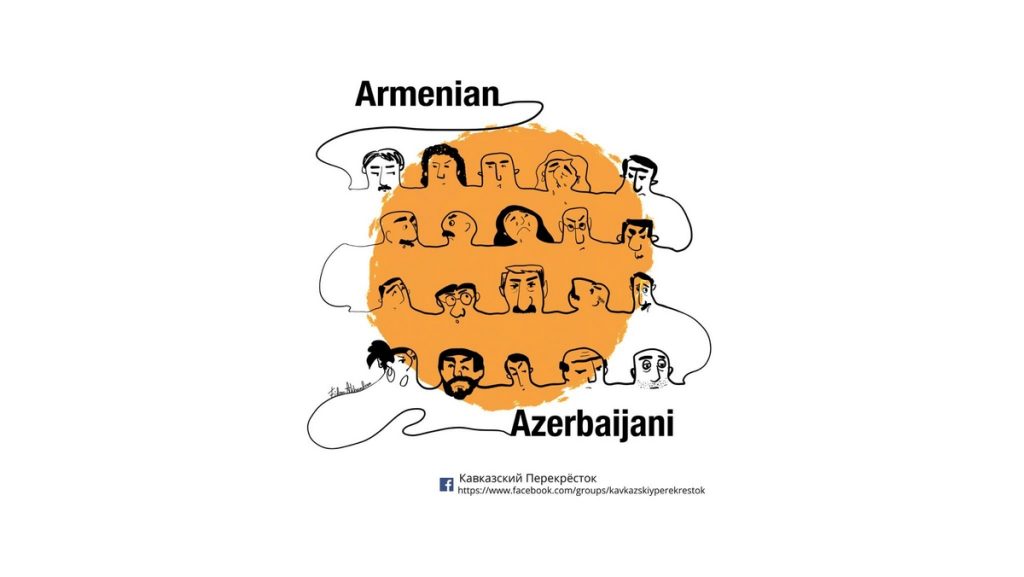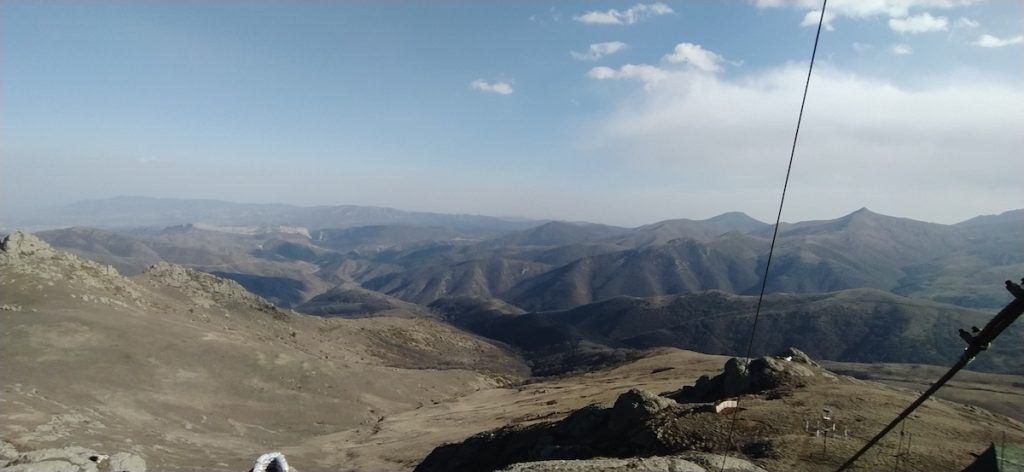Armenian-Turkish "normalisation" process: aspirations and asymmetry
Armenian-Turkish “normalization” process
For Armenia, the unprecedented losses in the 2020 war for Nagorno Karabakh ushered in an unexpected period of uncertainty and insecurity.
Faced with the stark reality of defeat, Armenia has struggled to adapt to a new reality, and has strived to adopt a new post-war strategy to accommodate unforeseen challenges.
Against that backdrop, Armenia has moved quickly to re-engage its neighbor Turkey in pursuit of “normalizing” relations.
The normalization of relations between Armenia and Turkey is not a new policy, nor a particularly novel accomplishment. By seeking the twin objectives of reopening the closed border and establishing diplomatic relations, Armenia-Turkey normalization is after all a mere basic minimum for neighbors.
Moreover, closed borders and the absence of diplomatic relations between any countries are very much the aberration, and normalization is neither reconciliation nor rapprochement, although it is a foundation for that more ambitious goal spanning generations.
This new round of diplomatic re-engagement between Armenia and Turkey has been surprisingly rapid, however. After a flurry of positive messages and statements by both Armenian and Turkish leaders, an apparent breakthrough came in mid-December 2021, with an announcement by Turkish Foreign Minister Mevlut Çavuşoğlu that Turkey will appoint a “special envoy” empowered to negotiate the normalization of relations with Armenia.
And the sudden appointment of interlocutors by both Armenia and Turkey less than a week later confirmed the onset of this new policy of re-engagement.
- Armenia and Azerbaijan – what next?
- Op-ed: Wars end controversy and societal unrest
- Karabakh status – future prospects and possible options. A view from Baku
“No preconditions”
Although the announcement was hailed as a promising sign of a new political will in Turkey favoring the normalization of relations with Armenia, the Armenian position remains centered on a policy of “no preconditions.”
That policy, standing out as a rare example of consistency and continuation in foreign policy from the previous Armenia government, consists of a strategy to remove any direct linkage between normalization and other factors, including both the Armenian genocide and the Nagorno Karabakh conflict.
From this perspective, Armenia’s policy of “no preconditions” consists of an approach to Turkey limited in focus to bilateral relations. It also removes any demands or prerequisites on Turkey, most notably deferring any expectations of Turkish recognition of the Armenian genocide.
Given that moderate approach to re-engagement, Armenia expects a reciprocal stance from Turkey. And this means that any last-minute demands or prerequisites imposed by Turkey on Armenia could, and should, derail the process between both countries.
“Lessons learned”
As much as the timing of the latest round of Armenia-Turkey normalization stems from the new post-war reality, both sides are proceeding based on several “lessons learned” from the last round of negotiations, which succeeded in the signing of two diplomatic “protocols” in Zurich in 2009 but that also failed in the face of belated opposition from Azerbaijan.
One of the more obvious differences from the earlier round in 2009 was the launch of a process of diplomacy based on direct face-to-face meetings of special envoys. Unlike the many months of secret diplomacy facilitated by the Swiss that culminated in the Armenia-Turkey protocols, there has been very little preliminary contacts or covert meetings between Armenian and Turkish officials.
A second related difference stems from the current focus on negotiating practical and more modest measures that can be concluded without any requirement of parliamentary ratification—a political obstacle for the previous protocols.
Aspirations and asymmetry
And there are also key differences in this current round of engagement, well beyond the new post-war reality.
The first key difference lies in the new disparities between Armenia and Turkey.
For Armenia, despite the unprecedented defeat and subsequent state weakness in the 2020 war for Nagorno Karabakh, the country survived one of the most critical challenges. And with a resounding reelection in early elections in June 2021, the Pashinyan government secured a fresh mandate and retained a parliamentary majority.
Having weathered that post-war political challenge, the outlook for stability in Armenia is now greatly improved.
For Turkey, however, the Erdogan government is considerably weaker, embattled by both a significant decline in popularity and a serious economic crisis.
In this context, normalization with Armenia offers Turkey the possibility of a rare victory in foreign policy and an opportunity for “statesmanship.”
Despite that difference in state stability, the inherent asymmetry between Armenia and Turkey remains a constant concern.
More than the disparity in size between these two countries, this asymmetry is also reflected in the diplomatic match-up between both sides. For example, while Turkey appointed a career diplomat as its special envoy for talks with Armenia, the Armenian side chose a young parliamentarian with little or no experience with either diplomacy of negotiations.
That mismatch between the representatives, evident in the naming of Serdar Kilic, Turkey’s former ambassador to the United States, and the appointment of Ruben Rubinyan, the 31-year-old deputy speaker of the Armenian parliament, is further exacerbated by an additional discrepancy in diplomacy.
That latter factor is particularly notable, as Armenia’s lack of institutional memory and absence of any previous negotiators from the former government is a weakness against Turkey’s capacity to rely on decades of diplomatic history and experience from prior talks on normalization with Armenia.
Yet there is also an understated advantage in that diplomatic discrepancy. More specifically, the normalization process is not driven by the career diplomats but is dictated by the political leadership in both countries.
This means that even with a special envoy, Turkey’s approach will be largely defined and determined by President Erdogan, the Turkish Foreign Ministry relegated to a subordinate role empowered to implement, but not initiate policy toward Armenia.
Armenia’s special representative, however, is not a diplomat, and has the support and direct access to Armenian Prime Minister Pashinyan.
Thus, for Armenia’s Rubinyan, as a loyal confidant of the prime minister, his authority and autonomy to initiate policy provides Armenia with a tactical advantage of agility and response to overcome the seeming edge of greater diplomatic experience of Turkey’s Kilic.
The role of external actors
The initial official meeting of the newly appointed Armenian and Turkish special envoys was most significant for its location. Convened in Moscow, this first meeting reflected the post-war dominance of Russia, which ended the 2020 war by imposing its ceasefire and deploying its peacekeepers, as well as managing the broader restoration of regional trade and transport.
By holding the meeting in Moscow, the process also begins by securing Russian support and bringing Russia into the process as a stakeholder in its success. Although it would be wise to return to the region in the next meetings, this opening Moscow round was strategically significant.
But the most important external actor is not Russia. It was Azerbaijan that successfully derailed the 2009 Armenia-Turkey protocols. And it is Azerbaijan that is key to Turkish options regarding Armenia, based on the Turkish recognition of its own “red line” to not undermine Azerbaijan.
There are also other important external factors as well. As a driver motivating Turkey, diplomatic re-engagement can ease Turkey’s own isolation within the NATO alliance and its estrangement from its traditional ally the United States.
Moreover, normalization with Armenia also aligns with its own ambitious rapprochement with Israel and the UAE, while offering important diplomatic dividends from the EU.
What next
In this context of a coming contest of diplomatic negotiations between Armenia and Turkey, there are two main expectations through the coming year.
First, although the diplomatic process has started quickly, the negotiations are vulnerable to the lingering tension between Armenia and Azerbaijan, marked by attacks and incursions into Armenian territory by Azerbaijani forces and the continued captivity of Armenian prisoners of war and detainees.
A second risk stems from looming elections in Turkey and a serious crisis in Turkish politics, making the outlook for normalization ever more hostage to the course of Turkish domestic politics.
Nevertheless, despite this challenging outlook, there is a notable degree of justified optimism, highlighting normalization as a rare positive “game changer” in an otherwise insecure region at risk.
Richard Giragosian is the Director of the Regional Studies Center (RSC), an independent “think tank” in Yerevan, Armenia.
Trajectories is a media project that tells stories of people whose lives have been impacted by conflicts in the South Caucasus. We work with authors and editors from across the South Caucasus and do not support any one side in any conflict. The publications on this page are solely the responsibility of the authors. In the majority of cases, toponyms are those used in the author’s society. The project is implemented by GoGroup Media and International Alert and is funded by the European Union






















